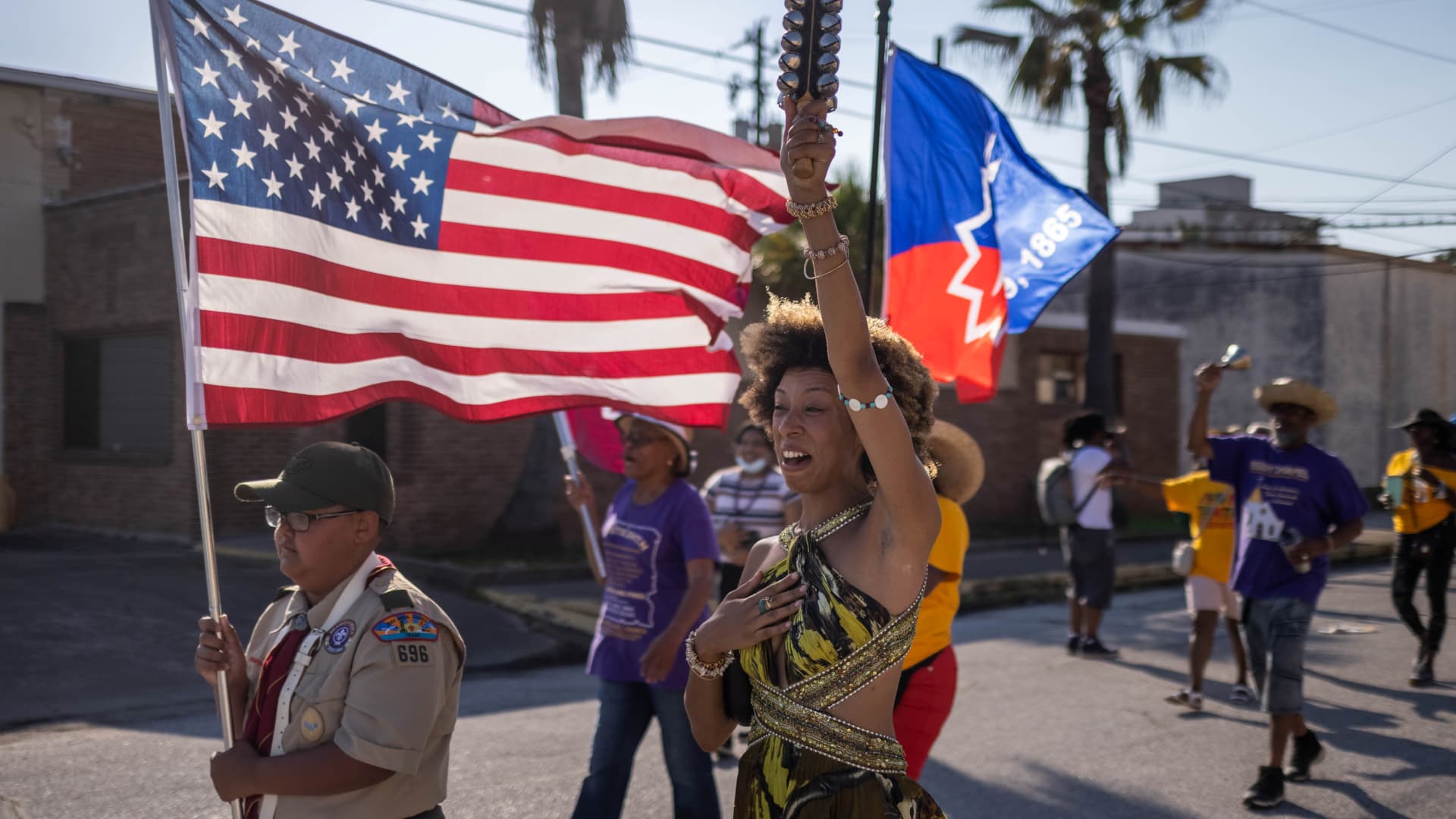Jim Casselberry, KnownSource: KnownBlack people in America won their personal freedom 158 years ago. Economic freedom, though, has been far more elusi
Jim Casselberry, Known
Source: Known
Black people in America won their personal freedom 158 years ago. Economic freedom, though, has been far more elusive.
Veteran portfolio manager Jim Casselberry is trying to do something about that, using his four decades of investing experience to help bridge the gap for people of color and the Indigenous population.
“We have to do better and we have to do better by getting the capital in the right people’s hands,” Casselberry said in a recent interview. “What we want to do is be able to help them stand up and use the talent and the opportunity and the skills that they have.”
Celebrated Monday in the U.S., Juneteenth has been considered a national holiday for two years. It marks the day that Major General Gordon Granger proclaimed freedom for slaves in Texas.
While the holiday marks a terrible wrong that finally was put right, it does not signal the end of racial inequality in the U.S. Nowhere is that clearer than in the distribution of wealth.
Houston resident Prescylia Mae sings during a re-enactment march of the emancipation proclamation celebrations outside of Reedy Chapel in Galveston, Texas, June 19, 2021.
Adrees Latif | Reuters
By now the numbers are painfully familiar: Black people constitute 13% of the population but hold just 4% of the wealth. The richest 400 Americans have wealth equal to that of the entire Black populace. The racial gap between whites and Black people is 6 to 1 — better than the 23 to 1 in 1870 after emancipation, but still a massive divide. These statistics are from the Minneapolis Federal Reserve as of 2019.
Bridging that chasm is part of the mission for Known, an organization that Casselberry co-founded in 2021 with a team of Black, Indigenous, Hispanic and Asian-American co-founders. Its premise is listed as “a finance and asset management firm that works with founders, family offices, and large asset owners who value competitive returns as well as powerful long-term racial, social, and climate impact.”
Casselberry said the goal, though, is right in the name.
“Why we even use the term ‘Known,’ particularly within the Black and Brown and Indigenous population, is we want them to feel like they’re known, that they’re seeing we have the abilities to be able to do this,” he said. “So many of the programs and so many of the opportunities … don’t work, but they haven’t necessarily been given the chance to work.”
Programs like affirmative action have helped make progress, he said, but he believes wider reforms are necessary.

“Given the polarized and dysfunctional government we have, it’s unlikely at best that we’ll see reparations at any meaningful scale. Philanthropy has tried many approaches, but those are also not on a scale where they can impact the problem,” he said.
“The real solution lies in the capital markets, where the real money is found and managed, but where more than 98% of funds under management are controlled by old majority white firms,” Casselberry added.
Treasury Department data indicates that the wealth disparity between white and Black families has changed little over the past 20 years.
Casselberry is hoping efforts by organizations like this can help change that.
“Known was formed to to be the to be the solution for asset holders that want to be able to invest for better outcomes,” he said. “And it’s formed to be the resource capital access for the [Black, Indigenous and People of Color] community to be able to access and be able to grow and to be able to create opportunities.”
www.cnbc.com
